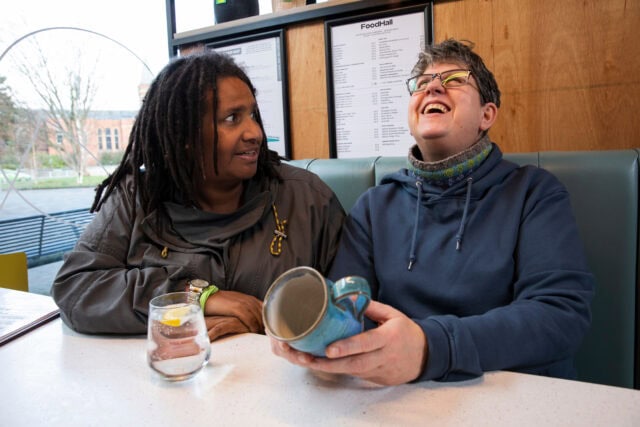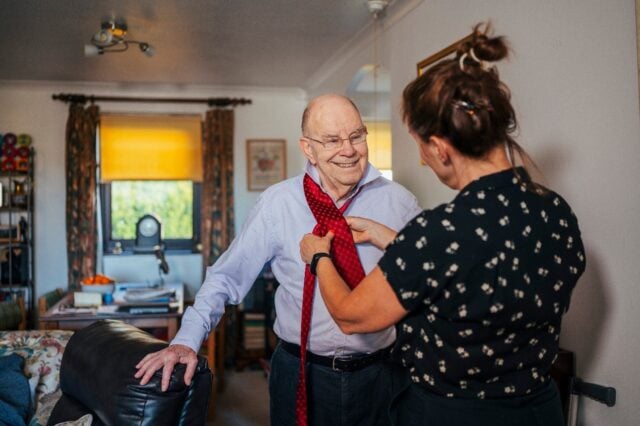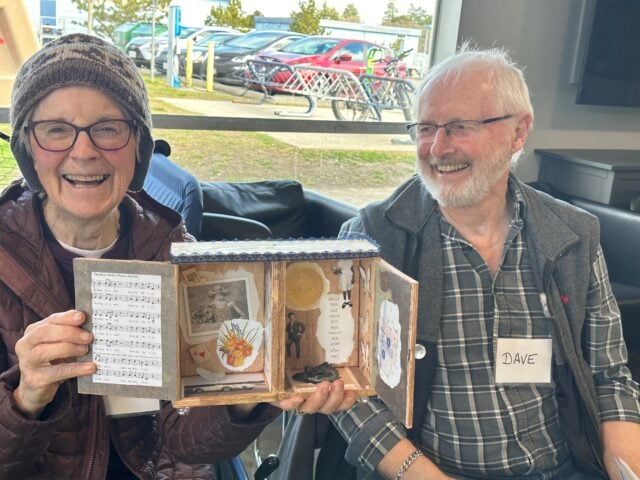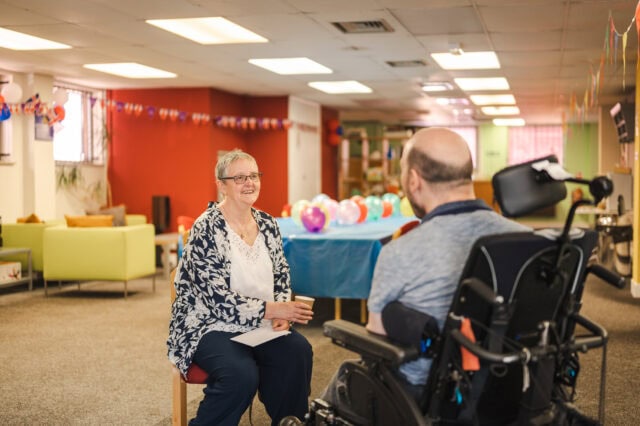By Carolyn Brandly

As Recreation Therapist, I help people with dementia improve their overall well-being and support them to live full lives through fun and leisure activities. After a diagnosis of dementia, life can feel unsatisfying and limited. By focusing on personal strengths and remaining capacities, and being open to new experiences, it is possible to live well despite dementia.
Therapeutic Recreation is not all fun and games. Recreation Therapists work with clients with disabilities to gain new knowledge and co-design activities tailored to support emotional, spiritual, mental, social and physical well-being. Specifically, it’s the facilitation of personally meaningful experiences that makes recreation therapy.
Remember to keep meaning in mind when supporting a person with dementia to live well.
There are many benefits to be gained from active engagement in life for people with dementia.For example, studies show meaningful engagement can reduce the behavioural and psychological symptoms of dementia. Staying physically active can help maintain mobility, which may lead to a reduced likelihood of falls. Continued engagement in life long hobbies adapted for current capacity can reduce feelings of frustration and boredom. Joining in a walking group or gardening club can provide a sense of purpose and nourishing social connections.
Seriously, it is essential for people with dementia to live active lives and to have fun.
Learn to increase meaningful engagement and go in search of some fun by exploring a few of my favorite resources from the Behaviours in Dementia Toolkit collection:
1. Emotional Wellness
Managing emotions and the stress of living with dementia.
Why should I try this? This collection of strategies used by people living with dementia offers practical advice to help handle the emotional toll dementia can bring.
2. Spiritual Wellness
Dementia & Spirituality – a special podcast series
https://www.dementiadialogue.ca/dementiaandspirituality
Why should I try this? Dementia can make a person feel as though they have been abandoned. This series discusses how attending to one’s spirit can be both an antidote and a source of strength.
3. Mental Wellness
BBC Reminiscence Archive: a selection of content designed to support reminiscence therapy.
https://remarc.bbcrewind.co.uk/
Why should I try this? Tapping into long-term memory through supported reminiscence can make it possible for people with dementia to enjoy interacting with others through their stories.
4. Social Wellness
Your Life Story Template
https://legacyproject.org/activities/lifestory.pdf
Why should I try this? Gathering and sharing stories experiences, interests and preferences can help build or maintain social connections for a person with dementia. Completing this simple template can provide hours of meaningful engagement and will result in a useful communication tool should words or recollections become difficult.
5. Physical Wellness
Exercise Resources for People Living with Dementia, Family & Friends
Why should I try this? Physical exercise should be continued for as long as possible for people with dementia to help prevent muscle weakness, mobility problems and other health complications associated with inactivity. Exercise can also help promote a normal day-night routine, improve mood and increase social participation.
_ _ _

This article was contributed by Carolyn Brandly, a Recreation Therapist supporting people with dementia to live well on Vancouver Island.
Would you like to curate a resource list for the Behaviours in Dementia Toolkit? Reach out to CCSMH knowledge broker Nick Ubels at [email protected]





